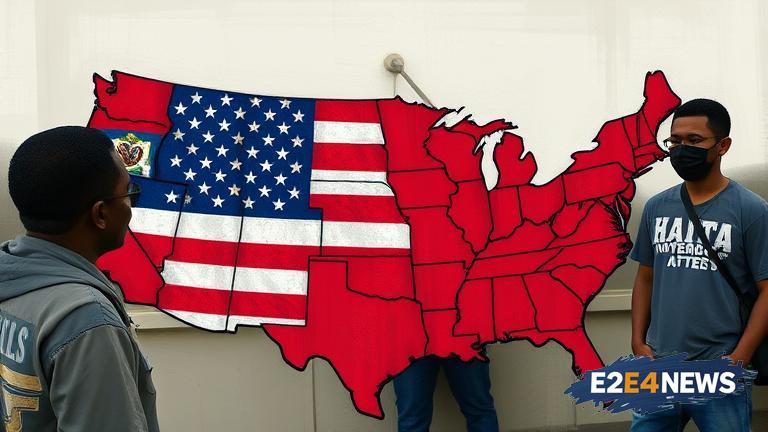The United States government has announced plans to deport permanent residents who have alleged links to Haitian gangs. This move has raised concerns among human rights groups and immigration advocates, who argue that the deportations may violate due process and put individuals at risk of violence and persecution in Haiti. The deportations are part of a broader effort by the US to address the growing problem of gang violence in Haiti, which has been plagued by instability and crime in recent years. However, critics argue that the approach is overly broad and may sweep up innocent individuals who have no actual ties to gangs. The US has a long history of deporting individuals to Haiti, but the latest move has sparked particular concern due to the country’s current instability. Haiti has been experiencing a surge in gang violence, with armed groups controlling large swaths of the capital city, Port-au-Prince. The situation has been exacerbated by a lack of effective governance and a struggling economy. The US government has argued that the deportations are necessary to protect national security and public safety, but human rights groups counter that the approach is misguided and may put individuals at risk. Many of those facing deportation have lived in the US for years, have families and jobs, and have contributed to their communities. Deporting them to Haiti could have devastating consequences, including separation from their families and exposure to violence and persecution. Furthermore, the deportations may also have a disproportionate impact on certain communities, including Haitian Americans and other immigrant groups. The move has sparked outrage among some lawmakers and advocacy groups, who are calling on the Biden administration to reconsider its approach. They argue that the US should instead focus on addressing the root causes of gang violence in Haiti, such as poverty and lack of economic opportunity, rather than simply deporting individuals. The situation highlights the complex and often fraught relationship between the US and Haiti, with the two countries having a long history of tension and conflict. As the deportations move forward, it remains to be seen how the situation will unfold and what the consequences will be for those affected. The US government has a responsibility to protect its citizens, but it also has a duty to uphold human rights and ensure that its actions are fair and just. The international community will be watching closely to see how the situation develops and whether the US will take a more nuanced and humane approach to addressing the complex issues at play.
